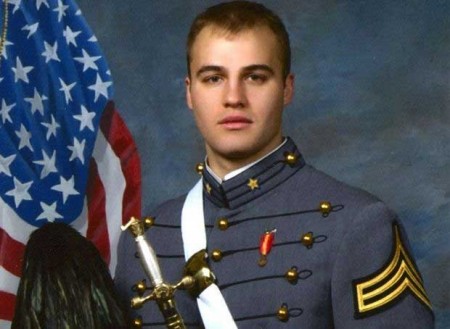A deserter, a near-suicide, and a French fighter, all in one person at Fort Drum
The New York Times has the fascinating story of Lieutenant Lawrence Franks Jr., a lauded West Point graduate and Fort Drum medical platoon officer, who deserted the Army base near Watertown to join the French Foreign Legion.
Franks is in Jefferson County today before he has to go to jail for four years for desertion with intent to shirk his duty of a deployment to Afghanistan.
Franks’ story is far more complicated than a simple desire to avoid combat in a dangerous theater of war, though.
Franks tells the Times he has had suicidal urges since he was a teenager:
Raised a Christian, he saw suicide as a sin, but said he fixated on ways to make his death appear accidental, such as driving into a tree or jumping off a cliff.
“No matter what I did, I couldn’t find peace,” he said.
The only therapy, he said, was physically punishing training exercises with other cadets.
“Some people hate to be cold or wet, but I thrived on it,” he said. “It was almost like a drug, having that challenge and focus made the depression go away.”
But when Franks was assigned to a desk job at Fort Drum in 2009, he lacked the physical punishment that kept him sane.
So he left to keep from killing himself, he says.
He served for the French Foreign Legion for five years, including peacekeeping missions in northern Mali, Central African Republic, and Djibouti. Then upon completion of his five year contract, Franks turned himself in to the U.S. Army in Germany.
The Army has been dealing with high rates of suicides for many years now. The Pentagon recently reported an all too infrequent drop in military suicide rates during the second quarter of 2014:
“We’ve brought on qualified responders from the U.S. Department of Veterans Affairs, many who have served in the military themselves and who understand that way of life,” Garrick said, “and we’re evaluating training to develop core competencies for peer, command, clinical and pastoral requirements.”
Still, Garrick noted fear of career damage remains one of the major obstacles between veterans in crisis and the path to treatment and counseling.
“The goal is to eliminate the stigma of getting help,” she said. “So there’s been an increase in first-level, peer-to-peer groups, which have made a difference in enabling people who fear they may be jeopardizing their career to reach out for care.”
But many critics say the military still hasn’t done enough to take mental health issues seriously and reduce the stigma among the rank-and-file of seeking out counseling and other kinds of help.
Franks’ attorney, Louis Font, told the New York Times his client’s four-year sentence is a sign the critics are right. “The Army continues to be tone deaf to mental illness and suicidal ideation,” Font told the paper.
Tags: fort drum, Jefferson county, military









Really interesting story.
I guess I would wonder a little about why he didn’t do more to try to put himself in a position within the Army to get deployed if that was what he was seeking? Certainly he had the ability to go through training, the French Foreign Legion is known for being difficult and tough to get through.
Also four years seems pretty rough compared to other sentences handed out to much worse offenses within the military.
I totally doubt Franks’ desertion had anything whatsoever to do with fear of combat.
Easiest way to commit suicide and not have it look like suicide is to appear to act heroic on the battlefield and get killed.
I wonder how often that happens.
So Bergdahl deserts and we trade Taliban leadership for his release from captors, and the private gets a hero’s welcome from the WH. Mr. Franks deserts but still is in the fight (granted with the Foreign Legion, who happen to be our allies) against Muslim extremist and he gets 4 years. WTF!